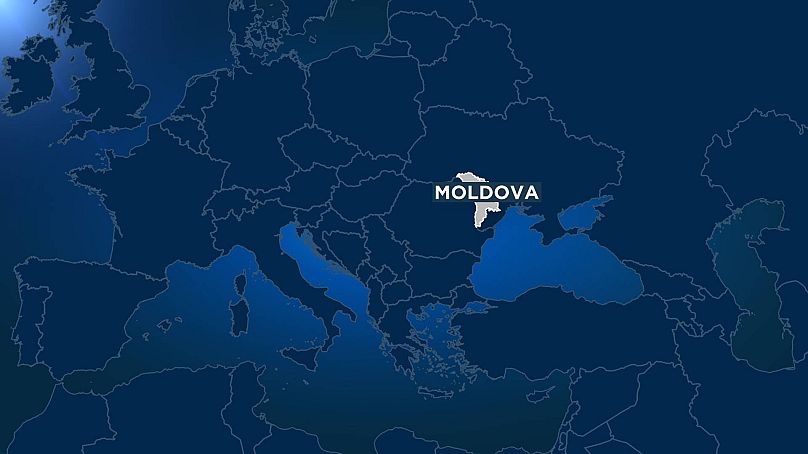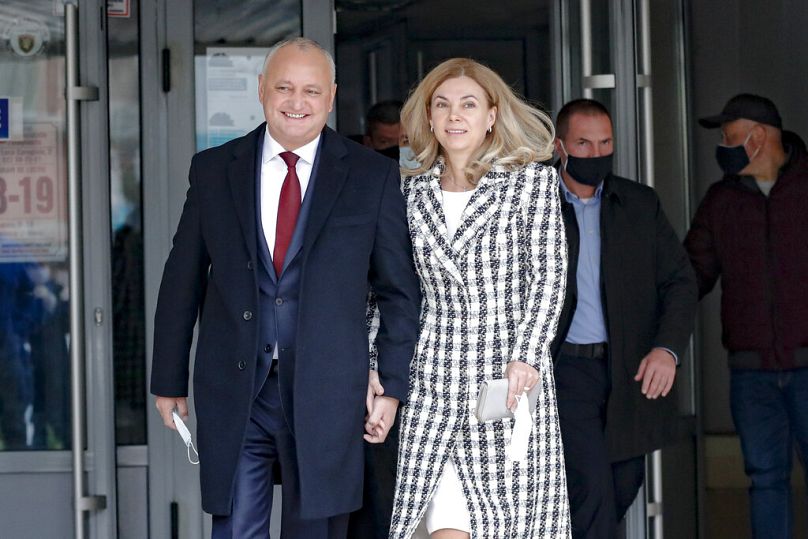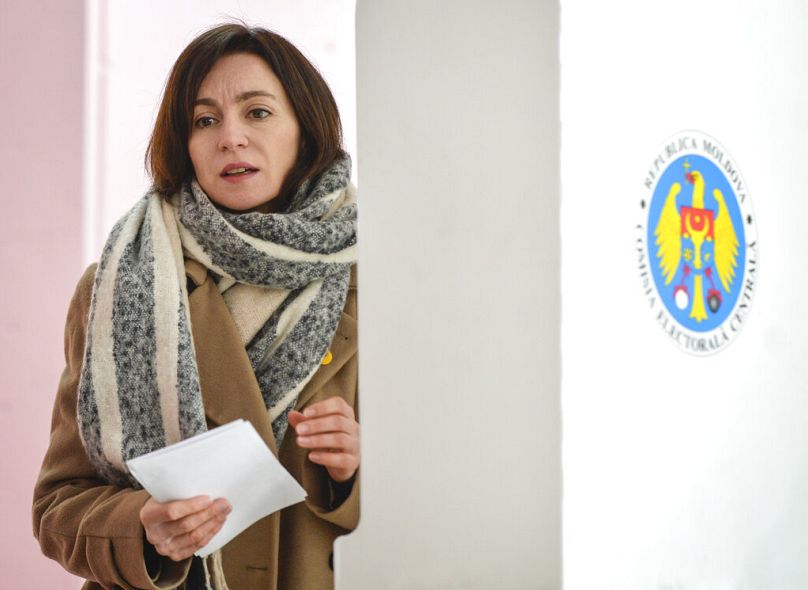Her landslide election win in November left her with a hostile, pro-Moscow parliament. Elections on July 11 are a chance to change that.
In Europe, Maia Sandu’s election as president of Moldova on 1 November 2020 led to a collective sigh of relief.
Sandu, a progressive and worldly former prime minister who wants to forge closer links between Moldova and the European Union, defeated the incumbent Igor Dodon, who is openly pro-Kremlin and visited Russia around 30 times during his four-year term as president.
When the result was announced, European Commission President Ursula von der Leyen congratulated her on social media and said that European-supported work to tackle corruption and improve the rule of law could now be restarted after languishing under Dodon.
Like other nations in south-eastern Europe, Moldova has a political and cultural divide between those that look eastwards and those who look west. Sandu galvanised voters in that latter camp, who see Moldova’s future with Europe rather than with Vladimir Putin’s Russia.
They included many among the between one and two million Moldovans that have left the country in recent years to find work and opportunities abroad, the majority of them to the EU. The money that they send home still accounts for some 16% of the country’s total GDP.
But despite the fact she beat Dodon, Sandu was left with a parliament that was elected in 2019 and in which her Party of Action and Solidarity (PAS) has just 15 of 101 seats. By contrast, Dodon’s Socialist Party and its coalition partners have a comfortable majority of 56 seats.
So, despite having won the presidential election by a landslide, Sandu was left with a hostile parliament. The snap election, called for July 11, will be a chance to change that.
Reform
The hostile parliament has left little opportunity for Sandu to enact the kind of sweeping changes that she promised during her campaign. In Moldova, legislative power is concentrated in parliament rather than in the president, who has little effective power to implement reform.
Since November, Sandu’s attempts to call new elections have been thwarted by the opposition, which declared a state of emergency over the COVID-19 pandemic. Finally, Moldova’s Constitutional Court ruled on April 28 that the state of emergency was unconstitutional.
In keeping with Moldovan political tradition, Sandu stood down as leader of the PAS when she was elected president, but her former party is polling in first place. It has been buoyed by her high personal approval ratings and her promise to tackle Moldova’s endemic corruption.
The Socialist Party, by contrast, has lost ground after its drubbing in the presidential election in November, and there are rumours that it may even seek to replace Dodon as leader.
More generally, given the COVID-19 pandemic and Moldova’s ongoing political and economic crisis - the IMF expects the country’s GDP to shrink by 4.5% this year - the attempts to prevent new elections was not well-received by voters hungry for improvement, and change.
“With the snap elections, there is a chance and hope that things will go back to normal and the reforms agreed with the EU will restart. Moldovans desperately want some positive change and the president and her party are seen as the best candidates to bring it about,” said Radu Magdin, an analyst.
Dodon, meanwhile, has opted for the same political tactics that he used during the presidential campaign. In recent weeks he has cast doubt on the maltreatment of Kremlin critic Alexei Navalny and visited embattled Belarussian dictator Alexander Lukashenko.
Neither are stances likely to ingratiate him or his party with pro-Western voters.
“Dodon was no credible partner for the West during his presidential term and at the moment he tries to activate the socialist, pro-Russian electorate with the typical geopolitical message to prevent the electoral meltdown of his party,” Magdin said.
That message is particularly toxic for voters at a time when Moldova has needed international partners during the COVID-19 pandemic.
Although Moldova has received over 100,000 doses of the COVID-19 vaccine from Romania and 15,000 via the COVAX mechanism, it has not had the access to medical equipment and vaccines given to EU member states. Less than 1% of its population is fully vaccinated.
Contrast that with EU member states like Slovenia (12%) or Slovakia (10%) and it is a relatively easy argument to make that it is better to be inside the European tent than outside it.
At the same time, over 150,000 doses have come from China and 70,000 from Russia, which has made much of its distribution of Sputnik V in Europe at a time when states on the periphery of the continent, including Moldova and Ukraine (also below 1% vaccinated) have struggled.
Ties with Russia
In light of Europe’s failures in south-eastern Europe when it comes to COVID-19, perhaps it is unsurprising that the narrative of Dodon’s Socialist Part ahead of the July elections has not shifted. A large number of Moldovan voters still see closeness to Moscow as an asset, not least at a time when - rightly or wrong - they feel let down by Europe.
“Dodon’s pro-Russia line is supported by his Party that has developed ties with Russia at the level of political personalities, institutions and political parties that surround Vladimir Putin. Refusing the pro-Russia leaning could mean losing a quite loyal group of voters,” said Denis Cenușa, an analyst at Expert-Grup.
And as elsewhere in the Balkans, a growing European antipathy towards further enlargement may convince many in Moldova that Brussels has little interest in closer ties. As in Georgia and Ukraine, both of which favour EU membership, the prospect of joining the bloc seems remote.
“Moldova is implementing the Association Agreement with the EU, but there is no European perspective openly promised by the EU,” said Cenușa.
“EU membership depends on consistent and irreversible improvements in the governance at home and a favourable political configuration in the EU.”
Like Georgia and Ukraine, Moldova will need both significant assistance from the EU and political reforms and stability at home before it has any chance of improving its European prospects, she said.
Every weekday, Uncovering Europe brings you a European story that goes beyond the headlines. Download the Euronews app to get a daily alert for this and other breaking news notifications. It's available on Apple and Android devices.














